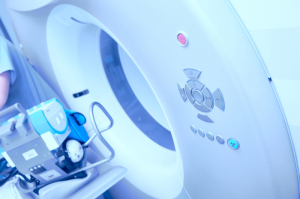
Low dose radiation 'likely helps
prevent' cancer: experts
By Lauren Dubinsky and Gus Iversen
By-and-large, the health care industry is on a mission to reduce radiation exposure to the bare minimum and avoid it entirely whenever possible — but some experts have taken the position that this attitude is misguided and potentially hazardous to patients.
An article published this month in
The Journal of Nuclear Medicine makes the case that the nature of radiation exposure is fundamentally misunderstood.



Ad Statistics
Times Displayed: 58694
Times Visited: 1817 Ampronix, a Top Master Distributor for Sony Medical, provides Sales, Service & Exchanges for Sony Surgical Displays, Printers, & More. Rely on Us for Expert Support Tailored to Your Needs. Email info@ampronix.com or Call 949-273-8000 for Premier Pricing.
The confusion goes back at least as far as Hermann Muller's 1946 Nobel Lecture, in which he claimed, “all radiation is harmful, regardless of how low the dose and dose rate.” This way of thinking is known as the linear no-threshold hypothesis (LNTH) and this
isn't the first time it's come under fire.
Study author, Jeffry A. Siegel — who is the president and CEO of Nuclear Physics Enterprises, an international nuclear physics consulting firm specializing in clinical trial design for radionuclide therapy agents, regulatory issues, quantitative diagnostic imaging acquisition and analysis, and radiation dosimetry — makes the case that Muller's argument is scientifically invalid.
Although it has repeatedly been shown that the dose-response relationship may reasonably be considered to be linear down to a certain threshold, (i.e. "half as much is half as bad") Siegel and the other authors argue, at a certain point this relationship changes.
"Credible evidence of imaging-related low-dose (<100 mGy) carcinogenic risk is nonexistent; it is a hypothetical risk derived from the demonstrably false LNTH," they wrote. "On the contrary, low-dose radiation does not cause, but more likely helps prevent, cancer."
Some evidence toward the possible benefits of very low radiation dose exposure was published in 2015 in
PLOS ONE, where researchers showed that
exposing fruit flies to radiation could actually make them live longer.
As Low As Reasonability Achievable, or ALARA, refers to the widely accepted principle that using the minimum necessary radiation dose for CT, X-ray and nuclear medicine imaging exams is the best medicine — and despite a lack of evidence regarding the dangers of low dose — many regulatory policies are based on it.
Siegel's team points to studies that demonstrate the LNTH and ALARA philosophies focus solely on molecular damage and disregard the protective, biological responses that can take place on a very low level.

